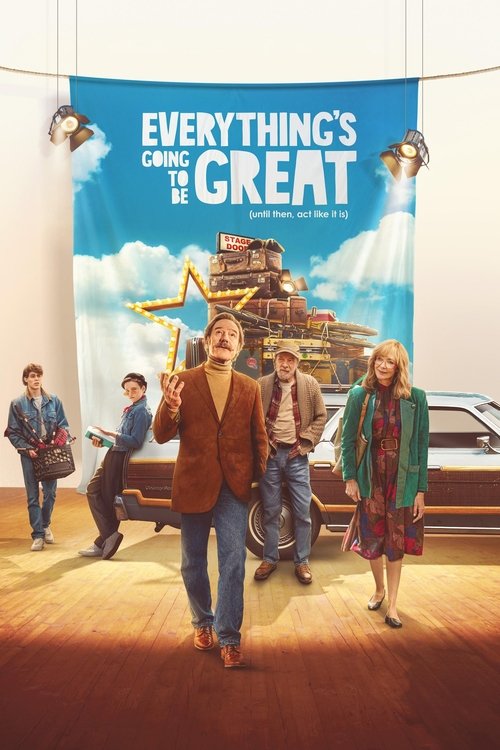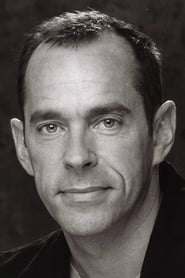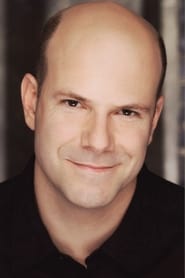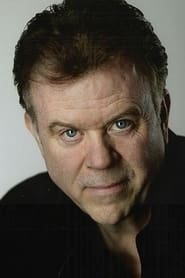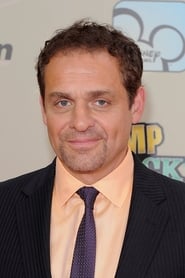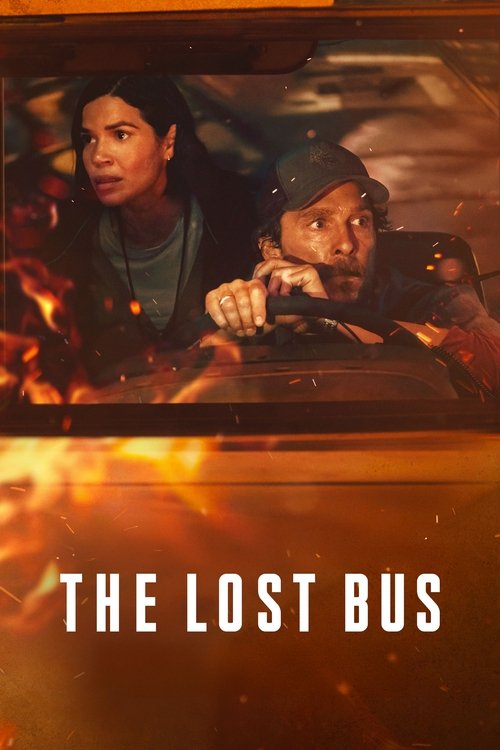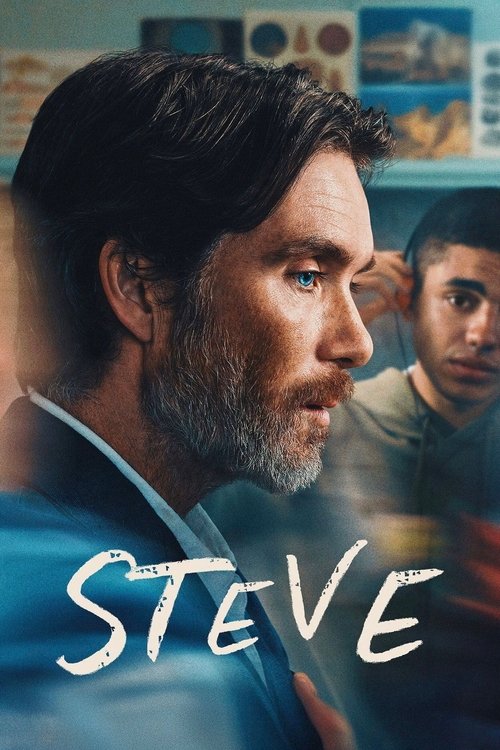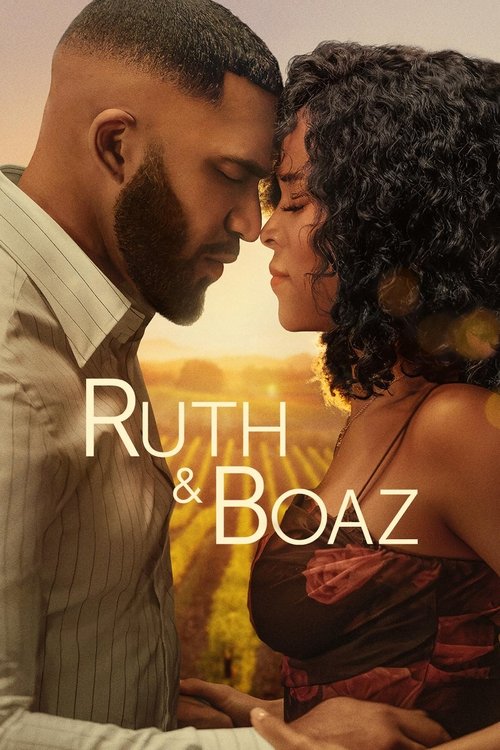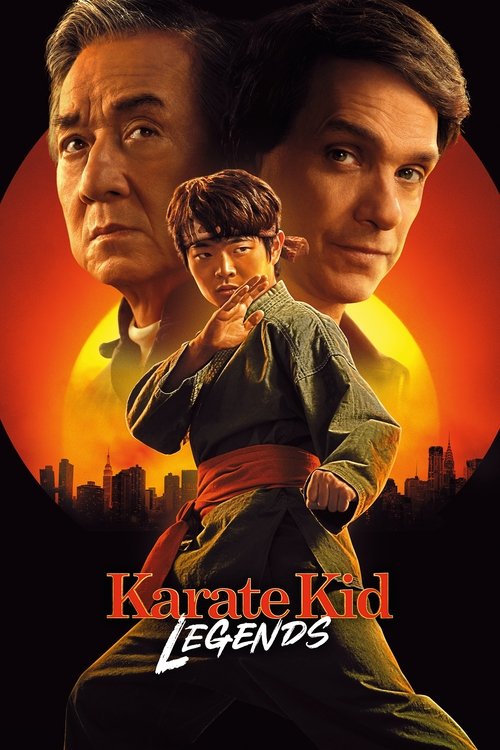
Ask Your Own Question
What is the plot?
The film opens in Kansas with Buddy Smart running a small, family-operated live theater from the ground floor of the family home. He shares the space with his wife Macy and their two sons, Derrick and Lester, and the troupe depends on whatever local audiences they can draw. Lester, a middle schooler who prefers elegant, old-fashioned clothes, frequently drifts into elaborate daydreams in which he carries on imagined conversations with dead theater greats such as Noel Coward; he turns these fantasies into audible asides that interrupt the company's performances and draw the ire of the stage manager. Derrick, the older son and a high-school football player, performs the more conventional role of athlete and older brother, tolerating the family business only insofar as it does not interfere with his social life. Buddy, played as an ambitious and hard-driving patriarch, speaks often of growth: he outlines a plan to expand from the single venue to two theaters, then to relocate the family to larger Midwestern cities--Milwaukee among them--to build a more sustainable theatrical enterprise.
One evening at dinner Buddy formally puts the expansion plan to a vote. He frames the move as the next necessary step for the company and asks his family to decide. Derrick objects loudly; he refuses to leave Kansas because he does not want to abandon his girlfriend--named Annabeth in some accounts and referred to as Madison Baines in others--and he is unwilling to give up his starting position on the high school football team, which he believes requires the stability of staying put. Macy and Lester support Buddy's ambitions; Macy articulates weariness with the hardscrabble life but also hope that a new market will revive the theater, and Lester, who is theatrical by temperament, imagines New York in five years. The family vote goes in favor of Buddy's plan, and they set about packing and making arrangements to open a second theater in a new location.
The Smarts relocate to the new theater and attempt to mount performances in their new market. Attendance falls short of Buddy's expectations. The strain of poor box office and Buddy's insistence on long workdays intensifies domestic pressure; Macy grows exhausted by the relentless demands of running the business and by Buddy's fixation on her past--her history as a local beauty queen--which he repeats as proof that she belongs at the center of attention. Buddy's unrelenting drive causes Macy to feel neglected emotionally. As the family struggles, Buddy begins to shift his tactics to fill seats. He starts attending different religious congregations and, despite having been largely agnostic, he solicits their members to support the theater. He frames shows as community events tied to those congregations and asks the congregants to subscribe or buy tickets. This outreach brings a measurable change: attendance increases and the theater starts to see more people in the audience.
Against the backdrop of this fragile improvement, Lester stumbles into a private encounter that will upend him. One day he witnesses Macy in an extramarital liaison with a new acquaintance; the sight shocks him into action. Lester flees the theater and runs away from home; he leaves the building in a panic, imagining voices from his fantasy conversations with Noel Coward that he interprets as disapproval. Macy notices her son's absence, chases after him, and catches up with him on the street. Their pursuit brings them to the side of Buddy, who is standing with a cell phone pressed to his ear. Buddy listens, stunned, as an offer arrives by phone: someone offers him the opportunity to manage or run a theater in Milwaukee. The prospect thrills him and he blurts his excitement aloud. Before he can fully process the implications, he tells Macy and Lester that he will buy champagne to celebrate and walks quickly to a nearby convenience store. Inside the store, Buddy collapses suddenly. Despite earlier warnings from his doctor about a serious heart condition and advice to stop working so hard, he suffers a fatal heart attack in the convenience store and dies; no one is responsible for his death beyond the failure of his heart.
Buddy's death plunges the family into acute crisis. The Smarts have invested the majority of their savings into the theater venture, and with Buddy gone they have neither the business stability nor the personal savings to keep their home. Macy and the boys have to leave the theater premises and move in with Macy's brother Walter, who lives on a farm some distance from town. Walter keeps a wary distance at first; he has a history of estrangement from Macy after she eloped with Buddy years earlier, and their relationship is strained. The family's financial and social displacement forces Derrick and Lester into a new school and a new social landscape.
At the new middle school Lester sits alone in the cafeteria. He overhears Derrick one day complaining about the theater work their parents used to force on him; Derrick derides Buddy's ambitions and mocks Lester for being different, for dressing and behaving outside the school's norms. The insults escalate until Lester can no longer stand them. The brothers face one another in the hallway and trade harsh words; the confrontation becomes physical and they scuffle briefly before being pulled apart. In the heat of that argument Lester makes a vow aloud: he will be in New York within five years and will make a career out of theater. Derrick, shaken, reveals something that had been simmering beneath his contempt--he ignores Lester at school because he believes Lester will succeed without needing to fit in, and he cannot reconcile his own insecurities with his younger brother's confidence.
Macy's grief unfolds in acute stages. At home she retreats from church and from the routines that once structured her life. The shock of Buddy's death severs the sense of continuity she had relied on; she questions everything that had seemed certain, including aspects of faith she had once held. On nights when she cannot sleep she opens long-forgotten boxes of memorabilia from her pageant days and drinks in private to blunt the ache. Her drinking grows noticeable to neighbors and to Walter. When the school calls requesting that Macy come in to pick up Lester because of a disciplinary matter, she arrives at the school drunk; teachers and administrators take note. Walter confronts her in private and tells her, bluntly, that he had stopped speaking to her after she eloped with Buddy and that he would have avoided the whole entanglement if he had been asked. He tells Lester to stop worrying about what other people think and to try to rebuild a relationship with Derrick.
Derrick's life takes its own small turns. One night he sits alone in his car with a girl named Selena. Derrick tries one of Buddy's old pickup lines--advice Buddy had once given him about how to connect--and the memory causes him to break down briefly as he thinks of his father. The moment becomes oddly tender rather than tragic: Derrick and Selena spend the evening together and she offers him companionship in his grief. The next day Selena appears at school and, having previously sat with Lester in the cafeteria on occasion, she starts to sit with Derrick's circle of friends instead. Lester finds himself isolated more often; he continues to retreat into imaginary conversations with theater ghosts, but he applies their counsel toward concrete actions, rehearsing lines and learning stagecraft on his own.
In the months after Buddy's death the Smarts attempt to reestablish some sense of normalcy. Macy begins to tentatively reengage with theatrical work as a way to earn money, aided by a former director from the family's old theater who still owes them small favors. On Macy's birthday she receives a package in the mail: a Bible, handwritten notes inside, and a small card suggesting that Buddy had purchased it before he died. Macy accepts the gift as if it were a last masculine attempt at comforting her. The truth, however, surfaces later: Lester had purchased the Bible himself and arranged for the old director to post it anonymously in order to lift his mother's spirits. Lester confesses the ruse to Macy in a private moment, and Macy reacts with a complex mixture of relief and sorrow; the staged gift does lift her from the depths of her depressive spiral and she regains enough stability to consider steady work again.
Macy accepts an offer to manage a small theater in New Jersey. The job requires long hours and a practical focus: she programs a season built largely around Neil Simon plays, titles that she believes will draw reliable, middle-American audiences. She takes charge of scheduling, marketing, and talent coordination, and she gradually assembles a small company of local actors. Derrick, freed from the immediate need to help run the family's failing Kansas enterprise, begins to reassert himself on the football field and spends more time with friends and with Selena; he steps away from theater work and recommits to athletics and the social life that comes with it. Lester helps Macy with production tasks at the New Jersey theater--costume repairs, ushering, small acting parts--and continues to rehearse for himself. He persists in hearing imagined voices of advisers such as Noel Coward, and he begins to take those inner dialogues as practical instruction about acting choices and career goals.
As the years pass the family's relationships rearrange around new routines. Walter's relationship with Macy softens incrementally; habitual resentment gives way to a guarded acceptance when he sees Macy functioning in steady employment and caring for her children. Derrick does not reconcile entirely with his previous disdain for the theater, but he makes a conscious choice to accept Lester's differences and to allow him to pursue the arts unimpeded. Lester, now more practiced and more disciplined, continues to cultivate his theatrical ambitions and tracks progress toward his five-year prediction that he will reach New York.
The film closes with the Smarts dispersed but intact around the theater world that Buddy had tried to expand. Macy stands in the lobby of the New Jersey house she manages, sorting playbills and signing a few checks, and she trains a young actor for a Neil Simon piece. Derrick attends a high-school game, his life anchored in coaches and plays, and he greets Macy and Lester after the match with a restrained warmth that signals a new equilibrium. Lester, working backstage during a modest production, takes a hurried breath and imagines the counsel of deceased dramatists; he translates those imagined words into a precise stage direction and prompts a small, effective change in the actor's performance. In the final shot Lester looks at a postcard tacked to a bulletin board--a playbill from New York he keeps as a promise to himself--and a subtle smile crosses his face as he gets back to work. The story ends on the family resuming daily labor in the theater world, each member moving forward in specific, practical ways shaped by the death of Buddy and the choices that followed.
What is the ending?
At the end of Everything's Going to Be Great (2025), Lester, the younger son, embraces his passion for theater and boldly inserts himself into a live performance, signaling his determination to pursue his dreams despite family struggles and past setbacks. Buddy and Macy, the parents, face the consequences of their ambitions and personal conflicts, while Derrick, the older son, remains distant from the theater world, focused on his own path. The family's future remains uncertain but hopeful, with Lester stepping into his own spotlight.
The ending unfolds scene by scene as follows:
The film's final act centers on Lester, the younger son, who has long felt like an outcast both at school and within the family's theater business. After a series of family moves and financial struggles, the Smarts find themselves living with Macy's estranged brother, Chris, in Kansas. The atmosphere is tense but also a crucible for change.
In the climactic scene, Lester is backstage during a live theater performance. Despite previous warnings and disruptions, he boldly steps into the spotlight during a critical moment in the play. This act is not just a disruption but a declaration of his desire to own his place in the theater world. His face shows a mix of nervousness and determination as he speaks lines, capturing the attention of the audience and the cast.
Meanwhile, Buddy, the father, is seen grappling with the fallout of his relentless ambition. His dream of expanding the family's theater business to larger cities like Milwaukee has met with repeated setbacks, including disastrous opening nights and financial strain. At this moment, he watches Lester's bold move with a complex expression--part pride, part realization of the sacrifices made.
Macy, the mother, who has endured emotional weariness and an extramarital affair, is present in the audience. Her face reflects a mixture of surprise and tentative hope as she witnesses Lester's courage. The family tension that has built up over the course of the film seems to momentarily dissolve as they share this moment.
Derrick, the older son, who has consistently resisted the theater life in favor of sports and a more conventional path, is absent from the stage but his presence is felt in the background. His reluctance to move with the family and his focus on football remain unchanged, marking a clear divergence from Lester's trajectory.
The film closes on Lester's face as he finishes his lines and the audience applauds. The camera lingers on his expression--relieved, proud, and ready to face whatever comes next. The final image suggests that while the family's future is uncertain, Lester's determination to carve out his own identity in the theater world is a beacon of hope.
Thus, the ending portrays the family at a crossroads: Buddy and Macy confronting the limits of their dreams and personal flaws, Derrick choosing a different path, and Lester stepping forward to claim his own spotlight. The narrative leaves viewers with a sense of cautious optimism about the power of self-discovery and perseverance.
Is there a post-credit scene?
The movie "Everything's Going to Be Great" (2025) does not have any publicly known post-credit scene. Available information, including official clips and reviews, does not mention or show any post-credit content for this film.
The search results include detailed dialogue clips and reviews focusing on the main story and characters but do not reference any scenes after the credits. This contrasts with some other 2025 films like "28 Years Later," which also do not have post-credit scenes despite sequels being planned.
Therefore, based on current sources, there is no post-credit scene in "Everything's Going to Be Great."
What role does Lester's imagination and conversations with deceased drama legends play in the story?
Lester, the younger son, often imagines conversations with deceased drama legends like Noel Coward, who give him advice. This element highlights Lester's deep passion for theater and his aspiration to succeed in New York's theater scene. It also serves to illustrate his internal world and how he copes with being an outcast and his ambitions, frequently disrupting live performances in the process.
How does Buddy's attitude toward faith influence the family's theater business?
Buddy, initially agnostic, begins to embrace multiple faiths and solicits their congregations to subscribe to the theater shows. This strategy successfully doubles the audience attendance, improving the family's struggling theater business and adding a new dynamic to Buddy's character and his relentless drive to expand the business.
What causes tension between Macy and Buddy during their theater venture?
Tension arises because Buddy is fixated on expanding the business and on Macy's past as a beauty queen, often neglecting her emotional needs. Macy becomes worn down by daily life and Buddy's relentless ambition, which frequently fails to meet her emotionally, creating friction between them.
How does the family react to Buddy's plan to move and expand the theater business?
Buddy proposes expanding the business to manage two theaters and eventually move to Milwaukee and larger cities. During a family vote, Derrick, the older son and an athlete, opposes the plan because he does not want to leave his girlfriend and football team. The rest of the family supports the move, especially Lester, who dreams of a theater career in New York.
What is the significance of the scene where Lester witnesses Macy in an extramarital encounter?
Lester accidentally sees Macy in an extramarital encounter with a new acquaintance, which deeply distresses him. He runs away, and Macy chases after him, catching up just as they meet Buddy, who is stunned by an offer to manage a theater in Milwaukee. This scene reveals family secrets and emotional fractures, adding complexity to the family dynamics and setting up future conflicts.
Is this family friendly?
The movie Everything's Going to Be Great (2025) is not specifically described as family-friendly and contains some mature themes that may be upsetting or objectionable for children or sensitive viewers. It deals with family dysfunction, stress, grief, and the struggles of a theatrical family, which includes emotional tension and coming-of-age challenges. The tone mixes comedy and drama with some awkward or cringey moments, and the film has an R-rated comedy vibe with occasional offbeat or awkward humor.
Potentially objectionable or upsetting aspects include:
- Family dysfunction and emotional struggles involving parents and children, which may include tense or difficult family dynamics.
- Themes of grief and stress that are explored in a heartfelt but sometimes heavy manner.
- Some awkward or cringey humor that might not be suitable for younger children or very sensitive viewers.
- The film's tone shifts midway, which may include more serious or dramatic content that could be unsettling.
There is no indication of explicit violence, strong language, or graphic content in the available reviews, but the mature themes and emotional complexity suggest it is better suited for older teens and adults rather than young children.
Does the dog die?
In the 2025 film Everything's Going to Be Great, there is no mention or indication that a dog dies. The plot and reviews focus on the family dynamics, their theater business, and personal struggles without any reference to a dog or its fate. Therefore, based on available information, the dog does not die in this movie.

